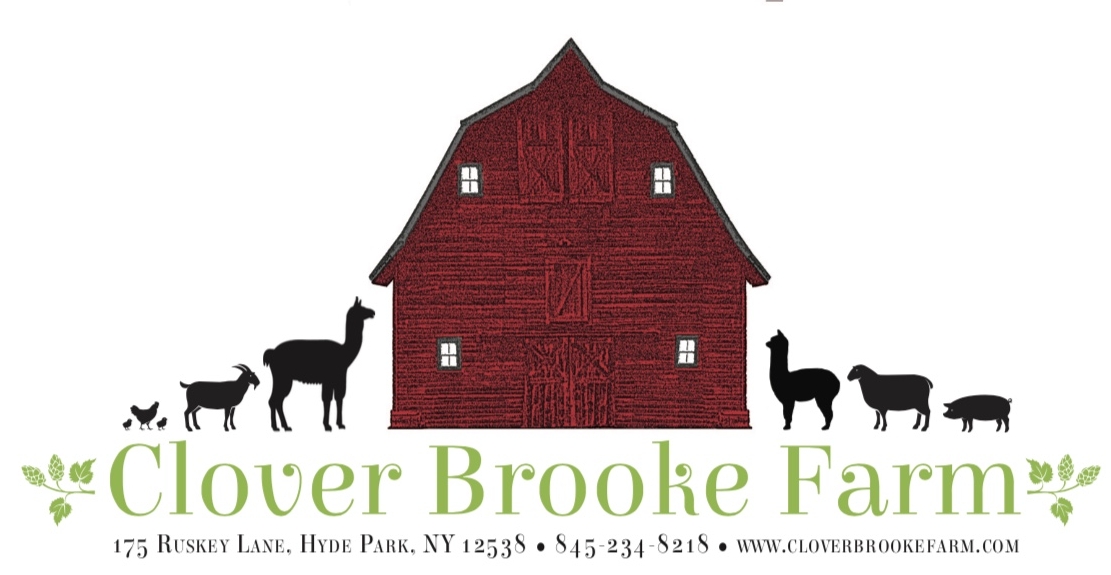Our Story
Our agriculture adventure began in 2007 with two goats….. Clover and Daisy, who our daughter Brooke (age 9 yr, at the time) shared daily the chores with us, hence the name of our farm, Clover Brooke Farm. Our two goats grew to a herd and a few years later, we added two llamas for herd protection. We began to realize how much as a family, we enjoyed spending time together learning about our animals and introducing them to others. We started taking our animals out into the community to local children’s homes, schools, daycares, nursing homes, community parades and community days, festivals and local county fairs. Some of our camelids were the first to be certified on the East Coast, under Delta Society’s – Pet Partners Program as Therapy Animals.
We dreamed of expanding our small farm of 5 acres in Hyde Park, however as full time employees at local private schools and raising a family, we had little to no extra time to spare. When we found spare time, we would often gravitate to local friend’s farms and volunteer our time assisting with simple tasks. We quickly learned that we enjoyed the physical labor, craved learning about the history of each farm and their homesteading practices. We meet many modern farmers that preserved the past and modernized current farming practices. In 2016 we found the farm we longed for, bucolic countryside, flowing pastures, historic barns and 18th farmhouse with charm and presence. We learned the last recorded family farming was in the 1960’s with a herd of 25 dairy cows. Regardless of the jungle pastures (read 20 years of overgrowth), no apparent fencing, overfilled barns of years past and deteriorating stone walls on one of the barns, we purchased the homestead dating back to the period 1850's.
We moved in September 2016, ordered a tractor and began to learn what it meant to be a farmer. My days were spent sketching barn renovations, fencing plans, watching tractor safety videos, walking the pastures pulling toxic plants, cleaning barns that hadn’t seen a broom in decades and meeting people stopping by to welcome us to the area. Their enthusiasm was contagious as they brought their friends and family by to see the animals in our field. Many reminisced about the old school house on Ruskey Lane, pastures that rambled throughout the area, grazing cattle, barn parties, fishing in the pond, playing in the fields, picking apples in the orchard and more
As we continued to focus on our To Do list throughout the Fall, Winter and early Spring, we acquired our first herd of sheep, a few llamas and alpacas to start the Fiber portion of our farm. We spent many weekday nights and full weekends clearing brush from overgrown stone walls, rebuilding stone walls, removing buried barbed wire and setting over one hundred 8 ft posts to support the installation of our fencing. Our goal was to have our animals on pasture by beginning of Spring with the hope we could slow down our hay costs. Fortunately, our daughter came home in April, from her second year of college, to help us reach our goal of Spring grazing. Shortly after, our work began on clearing the Hop Field, setting thirty five 24ft poles and planting 250 Hop plants, which would not have been possible without family and good friends to accomplish in three months. June welcomed the installation of our honey bees and hives, July and August additional fenced in pasture and September the installation of our 20 fruit tree orchard and berries bushes.
We began to realize our farming experiences were something of the past, where communities would gather to help one another with large projects, is no longer was the case. It was our family and friends who would thank us for allowing them to help with our farm projects, with the hope we would ask them back for future projects. Is this how communities began? People coming together with similar interests? Friends and families coming together to help one another, sharing a new knowledge, teaching each other new skills?
Both my husband and I consider ourselves lifelong learners and enjoy sharing skills we think others would be interested in. We want to offer these experiences to others through farm tours and visits. Explore how food is grown, animals cared for and raised, develop a connection where food comes from, where animal fiber comes from, how it’s processed, how all grain beer is brewed. By learning how a farm works, you can experience a vital connection to the importance of agriculture in our lives.
Clover Brooke Farm currently offers an assortment of Experiences, Classes, Community Events and Farm Tours booked directly through our website.
We hope you have enjoyed learning about our farming journey. Follow us on social media for our current farm project, newest baby animal born on the farm and our next Open House.
Warm regards,
Andrea Parent-Tibbetts & Michael Tibbetts, PhD
“The purpose of life is to live it, to taste experience to the utmost, to reach out eagerly and without fear for newer and richer experience” Eleanor Roosevelt

